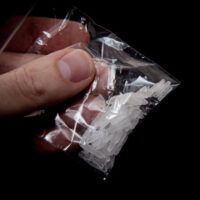What Is The Difference Between Drug Possession And Drug Distribution In Maryland?

Drug possession and drug distribution are serious charges. By being aware of the differences between them, and speaking with a drug crime lawyer today, it’s much easier to deal with any significant legal issues.
What Is Drug Possession?
A wide variety of substances cannot be possessed unless the one in possession of the substances has a valid prescription. To go along with that, there are many substances that cannot be possessed at all.
Some of the substances that fall under the laws outlined above are as follows:
- Morphine
- Meth
- Heroin
- Codeine
- Oxycontin
- Cocaine
- LSD
- Crack
- PCP
- Opium
Every single one of the substances above can lead to a prison sentence and a fine, if an individual is found to be in possession of these substances.
What Is Drug Distribution?
The substances that an individual cannot possess are subject to drug distribution laws. Each one of these laws governs the distribution of substances that are illegal within the state of Maryland.
Even though drug distribution is a slightly similar charge to drug possession – both involve an individual who is in possession of drugs – the consequences of drug distribution are far more severe.
Someone who is found to be distributing illegal drugs will be facing a significant prison sentence and a fine, along with a variety of other charges.
None of the charges that an individual may face are entirely uniform. Rather, the exact charges are heavily dependent on the drugs themselves, as well as the amount of drugs in the distributor’s possession.
What Is The Difference Between Drug Possession And Drug Distribution In Maryland?
A variety of differences exist between drug possession and drug possession. Some of the most notable differences between the two crimes are as follows:
- Drug possession charges are less severe than drug distribution charges.
- Many drug possession charges are misdemeanor offenses.
- Many drug distribution charges are felony offenses.
- Drug possession involves possessing a specific quantity of drugs.
- Drug distribution involves possessing a larger quantity of drugs.
Every single one of these differences serves to define the laws that govern both drug possession and drug distribution within the state of Maryland.
Outside of those differences, the charges for drug possession are as follows:
- A maximum prison sentence of up to one year.
- A fine that is no more than $5,000.
To go along with the above, the charges for drug distribution are as follows:
- A maximum prison sentence of up to twenty-years.
- A fine that is no more than $15,000.
Regarding the former charge, this is only true if the substances being distributed were Schedule 1 or Schedule 2. A variety of substances do not fall under that category and distributing these substances can only lead to sentences that are up to five-years.
Do You Need Legal Assistance
No matter the charges you are faced with, you must speak with a Bel Air drug crime lawyer at Schlaich & Thompson Chartered today. We will assist you in obtaining the best possible legal outcome and maintaining your freedom.
Source:
mgaleg.maryland.gov/mgawebsite/Laws/StatuteText?article=gcr§ion=5-602&enactments=false
law.justia.com/codes/maryland/2022/criminal-law/title-5/subtitle-6/part-i/section-5-601/
codes.findlaw.com/md/criminal-law/md-code-crim-law-sect-5-612.html























